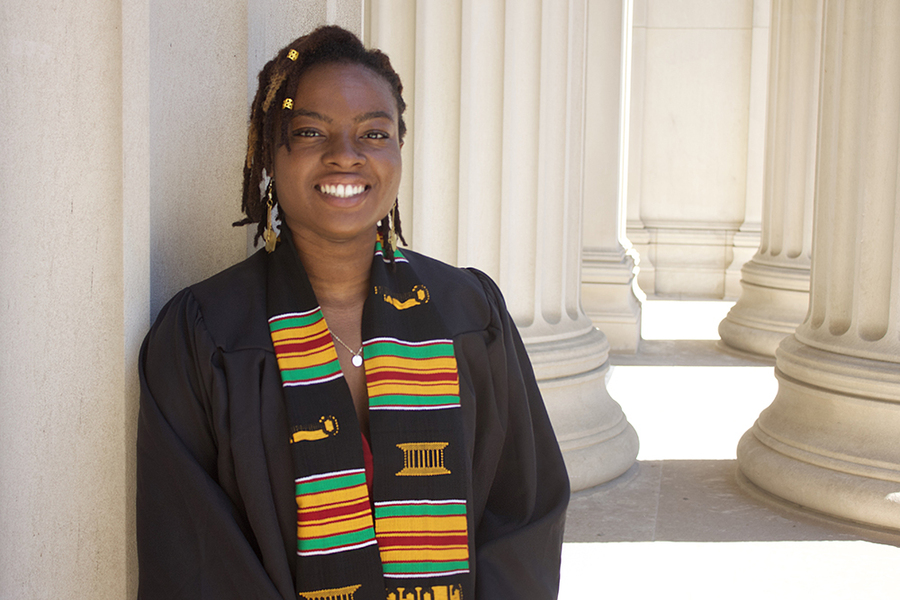A new session of the major course in New African and African Diaspora Studies at Massachusetts Institute of Technology has begun.
Students are encouraged to explore the wealth of African culture, innovation, thought leadership, and beauty as part of this course. Students can learn about the various diasporas thanks to their major.
In 2022, Stacy Godfreey-Igwe of Nigeria became the first graduate in the field of African and African diaspora studies (AADS), making history at MIT. Godfreey-Igwe majored in mechanical engineering and is a fellow at the Science Technology Policy Institute in Washington.
Although she had not initially planned to enrol in AADS, she recalls that as the daughter of immigrants from Nigeria, she has long been intensely interested in her cultural and ethnic history.
Because of this curiosity and her desire to utilise engineering to improve society, she took a different course at MIT.
Read also: UCT, GESDA Host Youth In Science And Diplomacy Discourse At WSF
Godfreey-Igwe recalls, “I came to MIT first trying to discover if there were methods to do good with engineering.”
“I came to the conclusion that perhaps the best approach for me to do that would be first to understand my cultural identity and then see what I could do from there.’’
Godfreey-Igwe spoke with Danielle Wood at MIT in 2020 to discuss the viability of pursuing a mechanical engineering double major.
The faculty advisor for AADS at MIT is Wood, an associate professor of media arts and sciences, as well as aeronautics and astronautics.
Although a minor and concentration were offered, there was no official major in AADS at the time Godfreey-Igwe filed the proposal.
Wood helped Godfreey-Igwe submit a request for a customised major to MIT’s School of Humanities, Arts, and Social Sciences (SHASS).
Igwe’s Wood formally requested permission from the Institute to offer the AADS major through SHASS in response to Godfreey’s request.
MIT undergraduates can now pursue a major, minor, or emphasis in AADS thanks to the request’s successful 2021 approval.
Students can obtain AADS credit while studying abroad at the University of Pretoria in South Africa due to the program’s collaboration with the MIT International Science and Technology Initiatives (MISTI).
Currently, about 15 MIT undergraduates are majoring in, minoring in, or specialising in AADS.
The previous minor and concentration are built upon, according to Wood, as is the framework offered by other interdisciplinary majors, as well as the research and teaching efforts of numerous MIT professors, including Michel DeGraff, Helen Elaine Lee, D. Fox Harrell, Kenneth Manning, Craig Steven Wilder, and Melissa Nobles.
After collaborating with Harrell (previous AADS faculty advisor) and DeGraff to co-teach the major’s introductory course, 24.912, Wood was appointed as AADS faculty adviser.
Wood remarked, “There was a long history of people interested in creating this possibility before me.”
The AADS major, then, reflects the fusing of threads from many MIT schools and departments.
About African and African Diaspora Studies
The AADS major, minor, and concentration program combines possibilities for comparative study across international settings with comprehensive exposure to the history, arts, social science, and humanities fields. The major involves instruction in a language relevant to people in Africa and its diasporas in addition to the introduction course and fourth-year thesis (including over 30 Indigenous African languages such as Igbo, Amharic, and Luganda, as well as Haitian Creole, French, Spanish, and Portuguese). Students also take electives in the humanities, arts, social sciences, and history in addition to language instruction. They also finish a thesis on a subject of their choice; for instance, Godfreey-Igwe collaborated with Amah Edoh, a former professor in the Department of Anthropology at MIT, to study mass migrations from West Africa to Europe for her thesis. The results of Godfreey-thesis, Igwe’s, which included coded interviews with migrants from West Africa, questioned conventional beliefs about the causes of migration.
Students from all backgrounds are invited to explore the wealth of culture, innovation, thought leadership, and beauty that derives from the continent of Africa and its numerous diasporas through the AADS major. The major also honours chances for students to embark on personal journeys of self-discovery, such as Godfreey-Igwe, whose identity includes African heritage. The major’s inclusion broadens the range of interdisciplinary offerings, which already include opportunities to study Latinx, Asian, American, Eurasia, and mediaeval studies.
Wood expressed her gratitude to all the MIT teams who contributed to the AADS major’s official launch and expressed the hope that it would serve as a springboard for the inclusion of additional viewpoints, such as Indigenous studies. She mentions that the creation of the AADS major concentration was made possible by Andrea Wirth, an academic administrator at MIT who passed away in 2022.
According to Wood, “the addition of the AADS major highlights an example of an institutional change that can tangibly contribute to living out the MIT Values of belonging and community, excellence and curiosity, openness and respect.”




